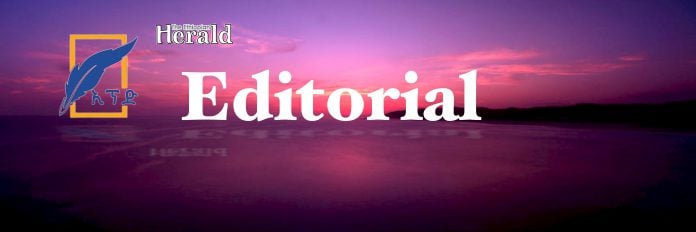
Ethiopia has scheduled to hold the second round filling of the Grand Ethiopian Renaissance Dam’s (GERD) reservoir on the approaching rainy season in July and August, 2021.
Underlining the unbearable economic cost of skipping this rainy season and delaying the filling by a year, (it costs around one billion USD), the nation has acknowledged its firm stand as the filling will not be postponed at any rate.
Subsequently, the government has extended invitation for Egypt and Sudan last week to nominate their own representatives as dam operators to exchange data among the three countries before the filling of the reservoir starts in the upcoming rainy seasons in Ethiopia.
Obviously, since the construction of the GERD started in 2011, Ethiopia, Egypt and Sudan have been negotiating to reach a legally binding deal with regard to the Dam. Simultaneously, the country has been exerting utmost endeavor to be as transparent as possible on the matter at hand and develop trust among the countries and beyond even though it is a futile effort as a result of the oscillated and irresolute stands of the two countries.
As a matter of course, Ethiopia has no intention to harm any of the riparian countries, including Sudan and Egypt. Rather, it has an aspiration to develop its own water resources, generate power for those millions of its citizens who do not have access to electricity and living in darkness for centuries;as well as enjoy economic development. In fact, the Dam, apart from benefitting local people, has significant economic advantage for Horn countries and is also an essential component to promote regional integration and corporation. This has been untiringly enunciated by the government though it has fallen on a deaf ear.
Currently, the construction work of the Dam is progressing well and the construction work has reached 79 percent being the fastest since the construction of the dam has begun.
As recently stated by Ministry of Foreign Affairs, following the speedy progress of the Dam construction and the approaching rainy seasons in Ethiopia, where the filling is scheduled, the need to work together on practical and important communication arrangements is vital to expedite appropriate information exchange arrangements and confidence-building measures among the tripartite. To this end, Ethiopia has invited Egypt and Sudan to designate representatives as dam operators to exchange data among the three countries.
The invitation was based on the consensus that was reached on the filling schedule formulated by the National Independent Scientific Research Group (NISRG) of the three countries along with the period of the filling in July and August and it may continue in September depending on the hydrology.
Truly speaking, the call Ethiopia has extended for Sudan and Egypt to designate representatives before the commencement of reservoir filling is an act that manifests nation’ s unreserved commitment to handle the issue in more transparent and concerned manner than ever and its keenness in promoting regional integration and cooperation as well.
Whatever, the response of the two countries, Ethiopia will hold reservoir filling at the set schedule because delay costs it a fortune. It also adheres to maintain smooth relationship with all countries around the Horn, region and beyond.
The Ethiopian Herald April 14/2021




